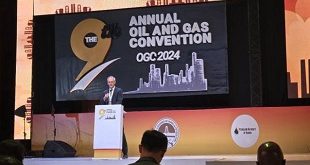
Kampala, Uganda | THE INDEPENDENT | The National Environment Management Authority, NEMA is pushing for an end to the ‘virgin production’ of plastics and instead investing in recycling, as a measure against plastic pollution.
This comes as the world prepares to mark World Environment Day on June 5, with the day’s events focusing on curbing plastic pollution, under a campaign dubbed Beat Plastic Pollution.
NEMA Executive Director, Dr. Akankwasah Barirega said that while there has been a campaign to encourage recycling, it has hardly had any impact and the importation of materials and production of new plastics continues unabated.
He said that why water bottles are the most visible plastic pollutant in Uganda is because currently, there is no technology in Uganda that can recycle a water bottle into a water bottle.
Akankwasah said the best way to go is to have alternatives including going back to glass bottles, a move that has already been adopted by some bottling companies and hotels.
He was speaking at the 4th edition of the private sector campaign dubbed ‘Taasa Obutonde’ which is led by Stanbic Bank, Uganda Breweries, Vivo Energy, and Next Media.
Recently, Stanbic Bank and Coca-Cola Uganda launched a partnership to recycle plastics at Namanve, and according to Cathy Adengo, the Stanbic Head, Sustainability, about 90 kilograms of waste is collected weekly at the Stanbic branches.
At the World Environment Day events at Kololo ceremonial grounds, Akankwasah says there will be an exhibition of alternatives to plastic production and use, and this will also form a basis for government support for the different sectors.
According to the United Nations Environment Programme, UNEP, more than 400 million tonnes of plastic is produced every year, half of which is designed to be used only once.
Of that, less than 10 percent is recycled, while an estimated 19 to 23 million tonnes end up in lakes, rivers, and seas, affecting fish and other marine life.
Experts say plastic use and waste lead to health effects like mental, hormonal, and metabolic imbalances, resulting in diseases like cancer, heart failure, and diabetes, as well as infertility.
In Uganda, some 12,330 tonnes of plastics were produced between 2018 and 2021 and, according to Dr Akankwasah, this is expected to rise by 91 percent by 2025, already adding to the dire consequences being experienced today.
Dr Akankwasa also called for the support of the recycling industry that deals with, not only plastics but other waste, especially solid waste, to save the environment from destruction. He says there is enough waste in Kampala alone that, if recycled into briquettes could be an alternative to charcoal, hence reducing tree cutting.
The war against plastics, targeting mainly single-use products has been on for more than 10 years but all the previous regulations and end enforcement drives, seem not to have had an impact.
Uganda was also part of the 2018 East African Community proposed ban on single-use non-biodegradable plastics, however, by 2020 only four of the five countries; Burundi, Kenya, Rwanda, and Tanzania had implemented the ban, to varying degrees though.
In Uganda, disagreements between sections of government over the concerns of the plastics industry failed the implementation.
Asked what can be done differently, Dr. Akankwasa said sensitization of the public about the dangers of plastic misuse is the best way, but added that the government is considering using tax policies to discourage their importation, manufacture, and use.
He said the public should start by knowing that while it appears cheap to buy, plastic materials are costly in the longer term, especially in terms of health.
Cathy Adengo, Stanbic Bank Head of Sustainability, said their campaign now fits into the global enterprise movement on environmental production that focuses on the Environment, Social, and Governance (ESG) issues.
Adengo said the corporates can do much is helping mitigate the effects of climate change, citing the current effects on communities and infrastructure exerted by the heavy rains.
Vivo Energy’s head of communication, Valery Oketcho said that on their part they are encouraging motorists and neighborhoods to take such waste at their retail outlets where bins have been installed for both plastic and degradable waste.
The company is in the process of rolling out the project to all their stations countrywide, according to Oketcho.
UNEP says World Environment Day 2023 will showcase how countries, businesses, and individuals are learning to use the material more sustainably, offering hope that one day, plastic pollution will be history.
“The good news is that we have science and solutions to tackle the problem and a lot is already happening. What is needed most now is a surge of public and political pressure to scale up and speed actions from governments, companies, and other stakeholders to solve this crisis,” it says on the World Environment Day website.
*****
URN
 The Independent Uganda: You get the Truth we Pay the Price
The Independent Uganda: You get the Truth we Pay the Price


